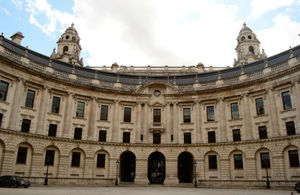New independent institute launched to make it easier for investors to have a positive social impact

A new independent institute that will make it easier for people to invest their money to benefit communities and society is launching today.
The Impact Investing Institute will look for more effective ways to combine financial returns with a social purpose to help improve people’s lives.
The body will encourage ordinary savers to choose ISAs, pensions and savings products that benefit the issues they care about. These could include investments in organisations that provide housing to homeless people, renewable energy companies or businesses committed to delivering sustainable employment.
It will bring together the UK National Advisory Board on Impact Investing (UK NAB) and the Implementation Taskforce on Growing a Culture of Social Impact Investing in the UK (Implementation Taskforce).
The initiative is being led by their chairs, Sir Harvey McGrath and Elizabeth Corley, who have launched the process to recruit the CEO of the Impact Investing Institute today.
The Institute has broad backing across the financial services and social sector, and will be supported by private firms and foundations alongside the Department for Digital, Culture, Media and Sport, the Department for International Development and the City of London Corporation.
The launch of the Institute builds on the UK’s history of encouraging a world leading market for social impact investing and promoting the UK as a global impact investing hub.
Culture Secretary Jeremy Wright said:
More people than ever before want their savings and investments to make a real difference to people’s lives and the planet, while still generating a return. We want to make it as simple as possible for investors to put money into the issues they care most about. The Impact Investing Institute will look at more ways for people to do this, whether you’re an asset manager or pension fund, or an ordinary saver who wants to invest their money to change lives for the better.
Elizabeth Corley, Chair of the Impact Investing Institute’s Management Board, said:
The Impact investing market has grown rapidly in the UK and around the world. Investing for positive impact goes beyond avoiding harm and mitigating risks, and is at the centre of a wider movement towards more responsible investing. The Institute will play a significant role in ensuring the UK continues to stay at the forefront of innovation in Impact Investing, enabling UK savers to invest in line with their values and have increased ownership over the social outcomes that their money generates.
Sir Harvey McGrath, Chair of Big Society Capital and the Impact Investing Institute’s Advisory Council, said:
The UK is well-placed with its long running history in impact investing and as a global financial hub to accelerate the next wave of growth and innovation in impact investing. Big Society Capital is pleased to show its support to the newly formed Institute. Bringing together the UK NAB and Implementation Taskforce will create a group with impressive convening power and world-class knowledge of both mainstream and social investment.
The Institute will be open and diverse, involving organisations and people from a variety of different areas with a commitment to investments that drive positive impact. More information about how to support the Institute can be found on its website.
International Development Minister Baroness Sugg said:
The UK public gives more money to charitable causes than any country in Europe, but people might not know how to invest their money in a way that matches their values.
We need more private investment for developing countries if we are to achieve the Global Goals and this new Institute will do that by encouraging savers to choose ISAs, pensions and savings products that benefit the issues they care about, like climate change.
The Economic Secretary to the Treasury, John Glen, said:
We know that many savers want to invest their hard-earned money into products that make a positive impact on the world.
Today’s announcement will support these aims, allowing more people to invest into causes that are meaningful to them, including renewable energy, community projects or education.
This is part of our wider work to promote sustainability, including in areas like Green Finance, which is encouraging investment in projects that will protect our natural environment.
Catherine McGuinness, Policy Chair at the City of London Corporation, said:
I’m delighted that the City of London Corporation is supporting the establishment of the Impact Investing Institute.
As the home of one of the world’s leading financial centres, I am proud that the City of London is leading the way in promoting more investment in businesses which are socially and environmentally impactful.
Caroline Mason, Chief Executive of The Esmée Fairbairn Foundation, said:
The role of investment and finance is essential to encourage and back organisations, products and services designed to deliver a strong, intentional positive impact. This movement has been growing steadily and will be given a strong boost by the role of the Impact Investing Institute in realising its full potential to build what we all know we need to work together on: a prosperous, sustainable and inclusive UK.
The UK National Advisory Board on Impact Investing: In 2013, under the UK’s presidency of the G8, the independent Social Impact Investment Taskforce was set up to “catalyse a global market in impact investment”, creating National Advisory Boards (NABs) for each member state. In 2017, the UK NAB produced its comprehensive plan for creating an inclusive and sustainable economy.
The Implementation Taskforce: In 2016, the UK government set up an Independent Advisory Group on Growing a Culture of Social Impact Investing in the UK, chaired by Elizabeth Corley. Following its report, the Prime Minister asked Elizabeth to lead an Implementation Taskforce to take forward the report’s recommendations. It drew on the expertise of over 80 firms and industry associations across a number of different sectors and jurisdictions.











Responses